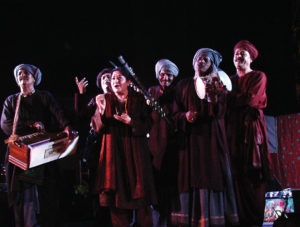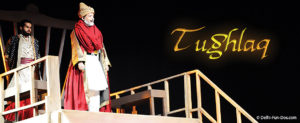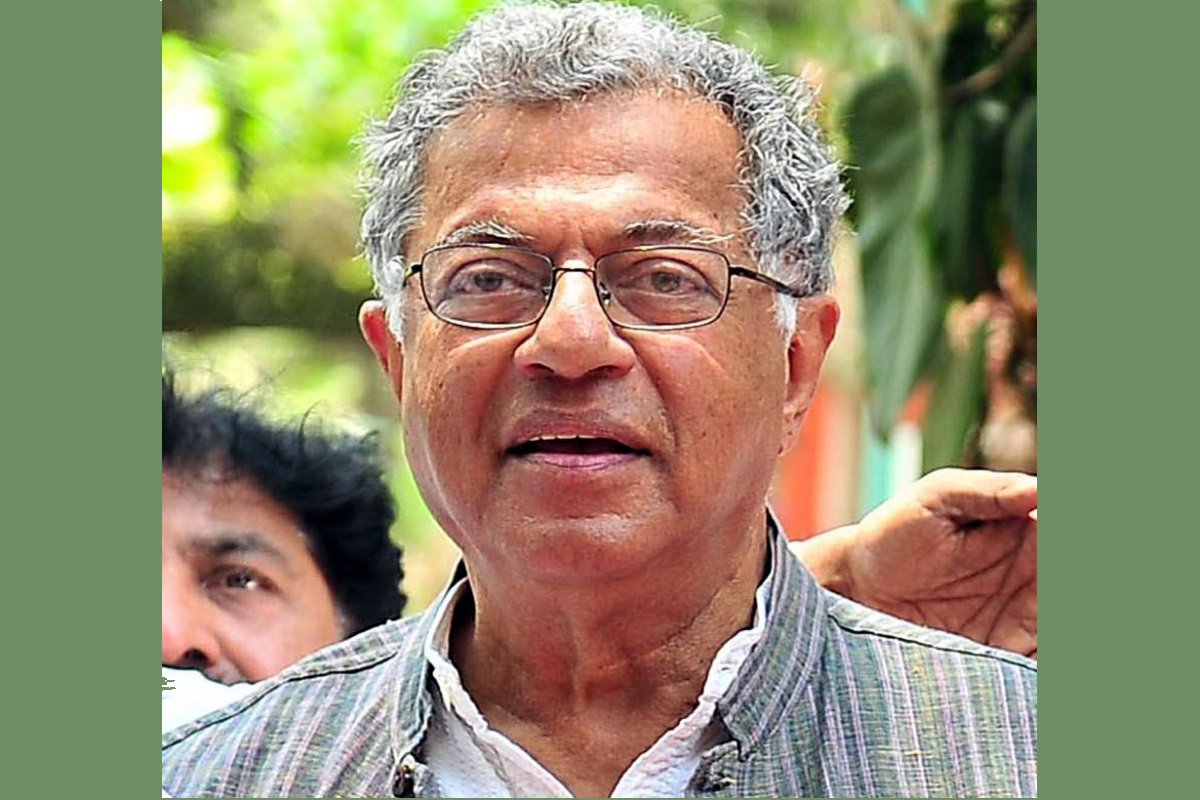Of knowing Girish and performing Nagamandala
The image of an ailing Girish Karnad, with tubes and a portable oxygen cylinder placed on his lap, his neck draped with a placard that read “Me Too Urban Naxal” at an event to mark Gauri Lankesh’s death anniversary will remain an abiding image in popular memory. For Girish, no cause was too big or too small; and justice and secular beliefs were dear to his heart. From the banning of a play to the cutting of trees: these were issues to which he lent support, even as his health was fragile and demanded rest. Undaunted, he typically responded: ‘for me, the health of a city and its social values are more significant’.
Girish’s strong moral spine and an unshakable belief in a pluralistic and secular India, in which he was born and wished to nurture and perpetuate, were the core source of his creative and personal journey.
My first memory of Girish is linked to my years as a student in the National School of Drama in the mid-seventies. The news of Girish’s arrival in the precincts of the school would lead to mass hysteria, almost as if a pop star was visiting. We, students, would rush to the corridors outside NSD Director Ebrahim Alkazi’s office and peer through the small porthole window hoping to get a glimpse of the handsome playwright. By now, his reputation as a playwright had already been mythologised in our minds and hearts through his celebrated plays Yayati (1960) and Tughlaq (1964).

I met Girish for the first time during the premiere of his film, Godhuli, in Bombay in 1977. BV Karanth, who was my teacher at the NSD, was his collaborator in the film, and both accepted my dinner invite.
Needless to say, I was overwhelmed.
As I had recently got married, everything for my husband Pushi and I was limited: limited space, limited liquor and limited food. Hence, inviting a famous writer and his film crew to my limited surroundings should have been a daunting proposition. But Girish proved to be a charming and gracious guest, making Pushi and I feel at ease. The memory of having hosted the great man to a meal was special and, almost four decades later, I still nurture that occasion.
Much later, when I moved to Chandigarh and set up my own theatre company, I read about his new play Nagamandala and was fascinated by its unusual mix of the natural with the supernatural; the abstract with the real. To me, the interplay between fiction and reality as a concept suggested endless possibilities as a director.

I slipped a postcard to Girish requesting to direct his, as yet unpublished play and was pleasantly surprised to receive the script in return. The eminent Punjabi poet Surjit Patar translated the text into Punjabi, and we performed the play across the country and in several international festivals.
Girish believed that retrieving and archiving the past, not only helps reclaim the past, but also forges new relationships between modernity, tradition, history and contemporary norms.
Nagamandala is a complex play and boldly challenged the existing dramatic structure. It questioned and reaffirmed issues of what is “real” and what is “imagined”. As Girish eloquently stated: “Moments of love, moments of happiness, do they really happen or do we imagine them.”
After seeing our rendition of his play in Delhi’s Kamani Auditorium in 1989, Girish invited us to tour Karnataka, and we ended up performing not only in Bangalore and Mysore but also in cities like Udupi, Heggodu and Dharwad to receptive audiences.
In 2005, I revisited the play and once again in 2014, and each time it spoke to me afresh. It helped me recognise how Girish used myth to understand the present, how the past and the present coalesce and came together, without contradiction or subterfuge.
Girish’s capacity to change the course of his work was a source of constant amazement, as it underwent continuous transformation and reinvention. From Nagamandala to Marriage Album, Fire and Rain to The Dreams of Tipu Sultan, history, myth, desire, sexuality, anger, hunger, greed and middle-class realities were all topics and subjects that formed part of his creative oeuvre. His plays seamlessly dovetailed tradition and modernity and the folk with the classical, using devices that challenged all conventional notions of structure, mise en scene and characterisation.
Girish was, indeed, a master craftsman who re-examined and investigated existing and entrenched cannons of playwriting. He forged a new vocabulary for performance making, definitively changing the course, not only of playwriting but also playmaking.
Girish was connected and rooted in the folklore, mythology and history of his home state of Karnataka, yet attentive to the country and the world. A renaissance man, his breadth of knowledge and understanding of literature and cultural history, folk forms, classical text, poetry and dance along with a knowledge of languages, was astounding. Few know that he spoke five languages other than English and his native Kannada.
But his capacity to inhabit many worlds and have the fluidity to traverse from acting in a film like Tiger Zinda Hai to Samskara revealed that he was comfortable travelling between the esoteric and the mundane genres; from the commercial and the popular to the philosophical and conceptual, with practised ease.

As a Rhodes scholar at Oxford, he studied mathematics, and perhaps this could be the reason behind the precision of his plays, without the slightest hint of flabbiness.
How does one mourn a friend, a mentor, a supporter? What are the words that one rummages through to articulate one’s sadness? Departures are, after all, painful and mortality is well, tenuous.
My mind is flooded with memories of my theatre company paying him Rs 100 as royalty per show, and the high value he placed on such a paltry sum.
Girish insisted that I drop the ji while addressing him. On my varied visits to Bangalore for a show at Rangshankara, a theatre complex that he was associated with, I would find him always warm and friendly, ready to buy me a cup of coffee or soothe my nerves before a show.
All else apart, my life has been truly enriched by knowing Girish and his work.
www.newslaundry.com





